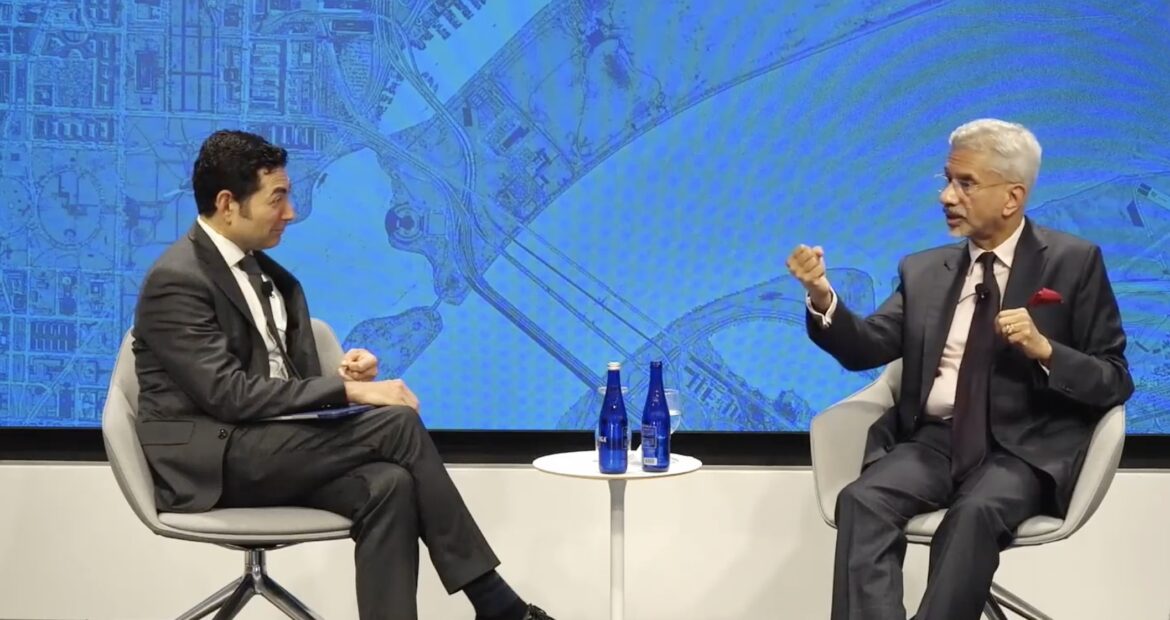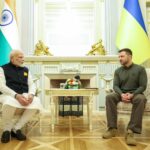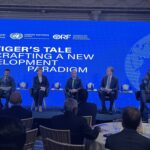India’s Foreign Minister S. Jaishankar highlighted that the “diaspora aspect of India’s foreign policy has been far more prominent than it was in the earlier era,” while crediting India’s “people factor” as a key contributor to strengthening its global relations.
Speaking with the President of the Carnegie Endowment for International Peace, Mariano-Florentino (Tino) Cuéllar, on October 1, 2024, in Washington, DC, Jaishankar addressed topics including the future of US-India relations, the role of the Indian diaspora, and India’s technological advancements.
He noted that the Indian diaspora globally consists of over 30 million people, including 19 million Indian citizens and 15 million individuals of Indian origin, and these numbers are expected to grow.
When asked about the Indian government’s perspective on the diaspora’s global role, Jaishankar explained that India contributes to the world in two key ways: through quantitative growth, such as GDP, and by becoming indispensable through resources, technology, or taking on global responsibilities.
“I think what India can do is definitely bring the people factor, the talent factor into play, and you can do that because of technology,” he emphasized. “But today’s era of technology is going to require a trained people, trained talent on a scale for which there are very few suppliers in the world, and we are one. So, when I contemplate a global workplace, when I look at greater mobility of people… for me mobility is probably the most frequent conversations I have with my counterparts.”
He said, during a meeting with over 60 foreign ministers at the recently concluded United Nations General Assembly, that approximately 30 of them emphasized the importance of people’s mobility. He advocated for a global workplace policy and discussed how to support communities living abroad while maintaining their ties to their homeland. As such, he highlighted recent hate crimes against places of worship in the United States, questioning who would stand up for those affected.
On the technological front, he stressed the importance of India’s advancements in Digital Public Infrastructure, noting the country’s emergence in the semiconductor industry as a significant step forward.
“We want to come in also as a technology player, including on the hardware side. That if Apple phones is today making so much of its production in India, if we are, you know, after years of neglecting this domain. Today we have a serious semiconductor mission of which our crucial partner is the United States,” he added.
In a discussion on multipolarity, Jaishankar emphasized that as a nation’s agenda expands, the necessity for partnerships also increase. According to him, “rebalancing accelerated by globalization,” prompts countries like India to adopt multi-vectored and multi-aligned policies.
Reflecting on his experience, he mentioned that during the 1980s, key decisions were made primarily by the United States and the Soviet Union, often in tandem. By the late 1990s, the U.S. made decisions more independently. Today, addressing significant global issues necessitates collaboration with other nations, highlighting the transformation of the international landscape towards collective decision-making.
Jaishankar also contrasted India’s approach in the multi-alignment era with the non-alignment era. He pointed out that during the non-alignment period, India was “more defensive,” with limited capabilities and contributions. He argued that the Quad partnership would not have existed during the non-aligned era but is a product of today’s multi-alignment context.
Regarding remarks from the United States on India’s issues often prompting strong reaction from India’s Foreign Ministry, Jaishankar emphasized the necessity for democracies to demonstrate mutual respect.
He stressed, “It cannot be that one democracy has a right to comment on another, and that is part about promoting democracy globally. But when others do that, then it becomes foreign interference. Foreign interference is foreign interference irrespective of who does it and where it is done. So it’s a testy area,” adding, “And my personal view, which I have shared with many counterparts. Look, you have every right to comment, but I have every right to comment on your comment. So don’t feel bad.”






